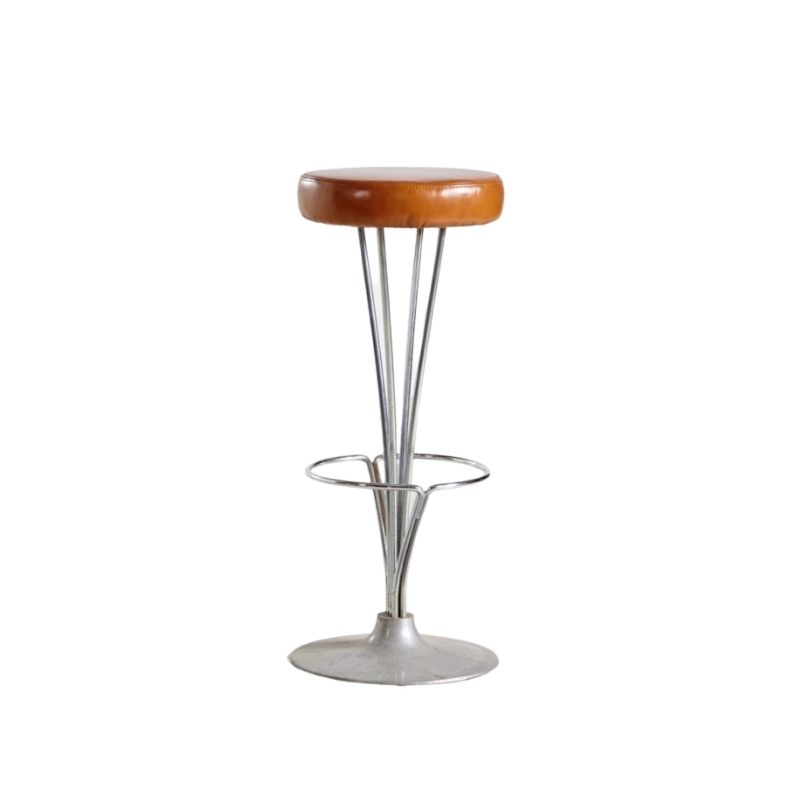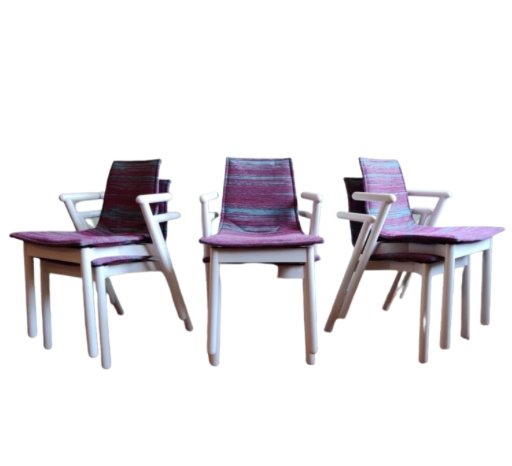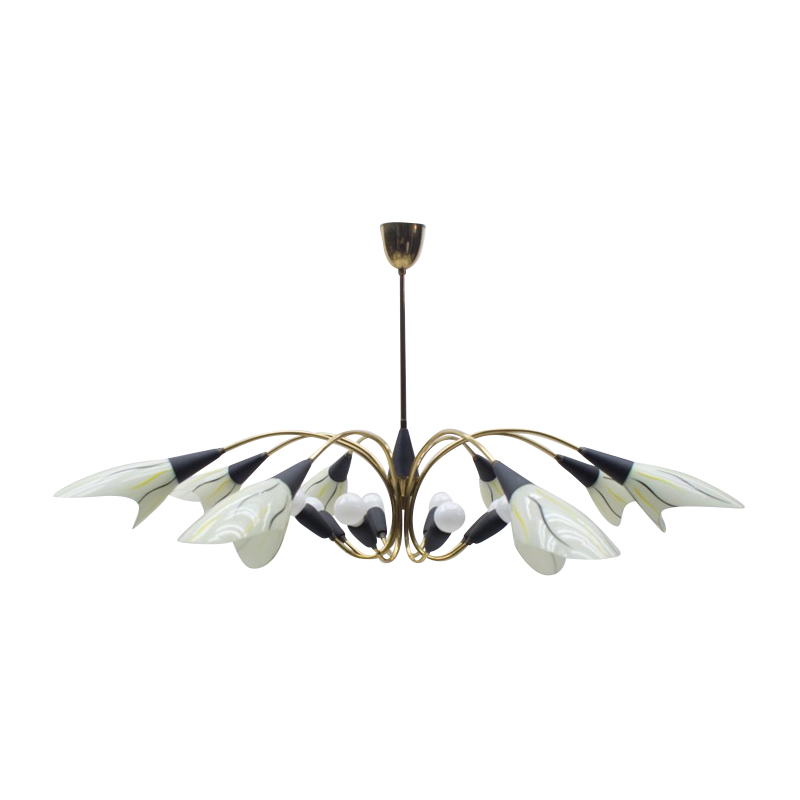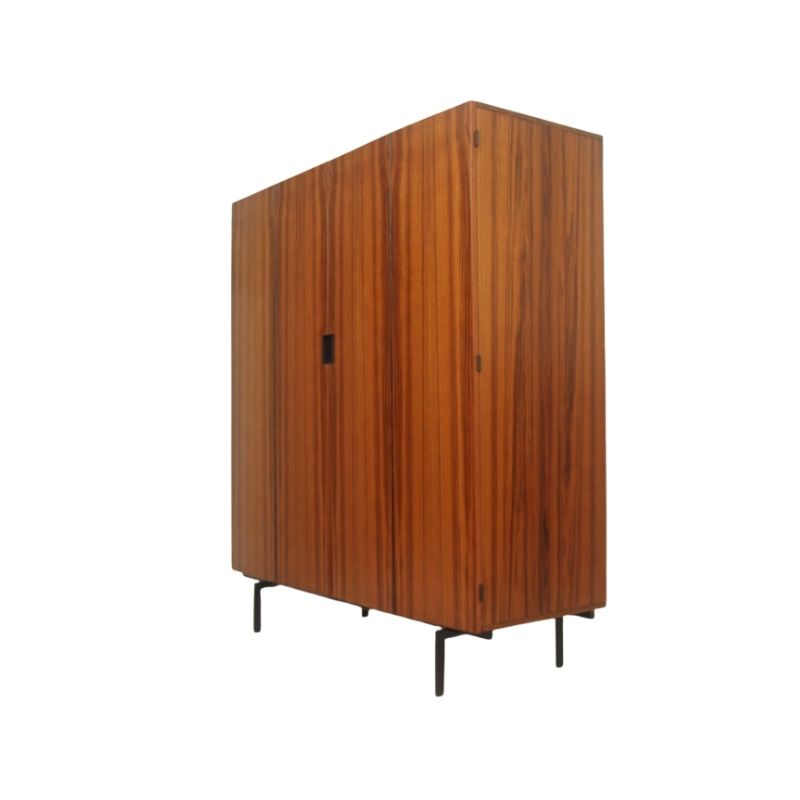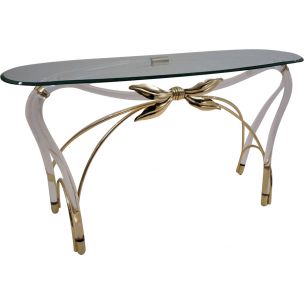Hi All, I was hoping that someone might be able to help me with the chairs below. I have five. I am unssure of the following: a/ wood type? not sure if they are oak, teak or blackwood? b/ maker? No stamps but a 35mm circle mark on each chair. Was wondering whether these may have been danish control marks? I am trying to rule out whether they have been made under licence in Australia by Danish deluxe but the wood just seems superior. The grain is gorgeous. c/ Construction of chair underneath. I have been told that wegner had a bracket underneath the chair but I think this is incorrect. Does anyone think these eyelets are original? d/ Is it plausible that early wegner chairs were ever unmarked? Any tiny bit of info would be really appreciated! Thanks very much in advance! 😉  <img class="wpforo-default-image-attachment w
<img class="wpforo-default-image-attachment w
They definitly look like...
They definitly look like 'the chair'.
Maybe they refinished the seat, wich could have been marked.
http://kitkadesigntoronto.com/?p=2730
All
All of "The Chairs" that I have seen have been burned with the Johannes Hansen mark, or the PP Mobler mark, but I dont know for sure if there was a period where they used stickers instead of burned marks.
Some of the things that look good - the strong, thick finger joints, the slight bevel at the edge of each leg post where it joins the armrests, the curved seat.
What strikes me as a little off is the delicateness of the taper to the leg-posts, and the stumpiness where the armrest terminates. If you look at the pics below the joint at the post/armrest looks thicker thant your photos.
I'll check the underside of my chair when I get home to see if it has brackets.
They look right to me
at first glance. I know that Knoll sold them for a period and you'll sometimes see them with a Knoll label. I don't recall if the ones with Knoll labels also have the brand (they were still made by Hansen, just sold in the US through Knoll). There looks to have been a circular label once on the bottom of your seat. Could have been a Danish control label to indicate where the piece was fabricated.
Thanks everyone.. I do find t...
Thanks everyone.. I do find the apparent thickness of the arms and legs do tend to alter depending on the angle that you are viewing.
The chair can look so diiferent from many angles...it just shows how well they have been designed!
I found them at the rubbish tip..can you believe it! I cannot believe what people throw out..so wasteful. I would have at least sent them to a charity store!
I really love them though, whether they are authentic or not.
they are
Yours are definitely beautiful chairs! And five at the dump for free is probably the best deal I've ever heard!!!
It's amazing what people have and don't know. A friend saw mine and said "Ohhhh... the accounting firm in my office building has like ten of these chairs around a conference tabe...but no one ever uses that room. They've had them since the 60s."
These are by Danish Deluxe
The Melbourne based furniture maker Danish Deluxe made these in Australia in teak and blackwood from the mid-sixties until 1972. Yours are in blackwood. The originals in Denmark were never made in blackwood, so there you have your identity 🙂
Nice chairs, almost as good as the original but not quite. There is conjecture as to whether they were made in Australia under license or whther DD just copied them. You usually see them in vintage stores for around $400 a chair pre-restored.
You interested in selling them? Paul
Wegner didn't employ crude...
Wegner didn't employ crude seat brackets either (pic 3). It's conclusive that these aren't originals.
It's interesting that these chairs are 95% identical to the Denmark made versions yet fetch a fraction of the price the originals do.
A bit of a statement about the Australian market I guess but also a reflection of how we view labels.
Perhaps you're right, Pegboard
While I've never examined the underside of this Wegner chair, it occurs to me that what I wrote last night was hogwash-- the little metal things in OP's photo merely attach the seat to frame-- not a strengthener, rather a fastener.
I'm too used to jumping to the conclusion that any unseen metal components are the mark of a second-rate wood chair.
If you need any help, please contact us at – info@designaddict.com



